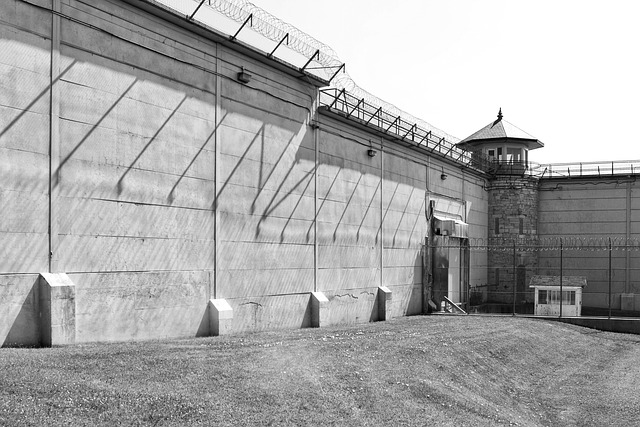Regional disparities in DUI laws significantly impact immigration consequences, with rural areas offering more lenient penalties but facing limited legal resources, while urban areas enforce stricter rules due to higher crime rates, leading to harsher sentences and potential deportation for non-citizens. Understanding these differences is crucial for mitigating immigration repercussions.
In the vast landscapes of rural America versus the bustling cities, DUI laws vary significantly. This article delves into the intricate differences between rural and urban DUI regulations, exploring their implications on immigration. From sentencing disparities to unique defense strategies, we uncover how these variations affect non-citizens’ permanent residency status and navigate the consequences of DUI convictions. Understanding these nuances is crucial for those facing these charges in diverse jurisdictions, offering insights into managing potential immigration repercussions.
- Understanding Rural and Urban DUI Laws
- Immigration Implications of DUI Offenses
- Sentencing Differences: Country vs City
- Defense Strategies in Diverse Jurisdictions
- Impact on Permanent Residency Status
- Navigating Consequences for Non-Citizens
Understanding Rural and Urban DUI Laws

In the realm of driving under the influence (DUI) laws, significant differences exist between rural and urban areas, with profound implications for individuals facing charges. Rural communities often have less stringent DUI regulations compared to their urban counterparts. This disparity is due to varying population densities and the overall character of each region. In remote areas, law enforcement resources may be limited, leading to less frequent patrols and potentially weaker enforcement of DUI laws. As a result, rural drivers might face less strict penalties for initial offenses.
However, this relaxed approach can have severe immigration consequences for non-citizens. DUI convictions in any setting can have significant impacts on an individual’s legal status, especially for those with immigration issues. In the context of rural vs. urban DUI laws, non-residents or immigrants might encounter unique challenges. Urban areas, with their dense populations and well-resourced law enforcement, tend to enforce DUI regulations more strictly, often resulting in harsher penalties, including increased fines and license suspensions. Understanding these disparities is crucial for anyone navigating the legal system, especially those facing potential immigration repercussions, such as those with outstanding visas or deportation orders.
Immigration Implications of DUI Offenses

The immigration implications of DUI offenses can be severe, especially for non-citizens residing in rural or urban areas. In the United States, a DUI conviction carries significant penalties, and these can differ based on location. For immigrants, these disparities can have profound effects on their legal status. In rural areas, where law enforcement may have limited resources, the focus is often on major crimes, leaving lesser offenses like DUI potentially overlooked. This could mean reduced penalties for offenders, but it also raises concerns about inconsistent application of the law.
In contrast, urban jurisdictions tend to enforce DUI laws more strictly due to higher crime rates and dense populations. This can lead to harsher sentences, including longer license suspensions, fines, and even deportation for non-citizen drivers. The Immigration Consequences of DUI Convictions include denials of visa applications, removal from the country, and barriers to legal residency. Thus, rural and urban areas may not only differ in their DUI enforcement strategies but also in the subsequent immigration outcomes for those convicted.
Sentencing Differences: Country vs City

In rural areas, sentencing for DUI often involves more lenient punishments compared to urban regions. This disparity can be attributed to several factors, including population density and access to resources. Courts in rural settings may consider the impact on smaller communities and take a more rehabilitative approach, offering alternatives like community service or participation in awareness programs. As a result, individuals facing DUI charges in these areas might encounter reduced fines and shorter license suspensions.
Conversely, urban centers typically have stricter sentencing guidelines due to higher crime rates and congestion. The Immigration Consequences of DUI Convictions can be significantly more severe in these regions, especially for non-citizens. Urban courts often mandate mandatory minimum sentences and harsher penalties to deter a larger number of offenders, which can lead to longer prison terms and extended periods of license revocations.
Defense Strategies in Diverse Jurisdictions

In diverse jurisdictions, the strategies employed to defend against Rural vs Urban DUI charges can vary significantly. Urban areas often have more established legal defenses due to higher population density and increased media coverage on DUI-related issues. Defendants may leverage community resources, such as support groups for individuals with substance abuse problems, to present a compelling case of rehabilitation. Additionally, urban lawyers might argue that police oversight is tighter, potentially leading to less reliable evidence collection methods.
In contrast, rural communities pose unique challenges. The lack of diverse legal representation can limit options for defendants. Immigration consequences of DUI convictions become a more pressing concern in these areas. Rural defense strategies may need to focus on proving mitigating circumstances, such as isolated incidents or lack of prior offenses, to avoid harsher sentences. Given the lower population density, rural lawyers might also emphasize the impact of limited transportation and community support systems for their clients’ future prospects following a DUI conviction.
Impact on Permanent Residency Status

The immigration consequences of DUI convictions can vary significantly between rural and urban settings due to differing law enforcement practices and population densities. In urban areas, with their higher visibility and more extensive law enforcement presence, drunk driving is often caught and prosecuted more rigorously. This can lead to harsher penalties, including stricter license suspensions and potential deportation for non-citizens. In contrast, rural regions may have less frequent patrols and may be less equipped to detect and penalize DUI offenses, potentially resulting in lighter sentences but still carrying substantial Immigration Consequences of DUI Convictions for those who are not permanent residents.
For individuals facing DUI charges in either setting, the impact on their permanent residency status can be profound. Non-citizen drivers convicted of DUI may face deportation or denial of re-entry into the United States, especially if they have prior convictions or fail to comply with court-ordered conditions. Understanding these Immigration Consequences of DUI Convictions is crucial for anyone living or traveling in either rural or urban areas, as it can affect not only their ability to remain in the country but also their future opportunities and overall quality of life.
Navigating Consequences for Non-Citizens

Non-citizens living and driving in rural or urban areas alike face unique challenges when it comes to DUI (driving under the influence) laws, especially regarding potential immigration consequences. The Immigration Consequences of DUI Convictions can be severe, with penalties including deportation, denial of re-entry, and suspension or revocation of driver’s licenses. These strict rules differ significantly from state to state, making it crucial for non-citizens to understand their rights and the specific legal landscape in their region.
For those without citizenship, a DUI charge is not only a criminal offense but can also impact their immigration status. The consequences may be more severe in rural areas where there’s less access to legal aid specifically catering to non-citizen drivers. In urban centers, while legal resources might be more readily available, the diverse nature of the population means that cultural and language barriers can still pose significant challenges. Therefore, seeking immediate legal counsel is essential for non-citizens facing DUI charges to mitigate potential Immigration Consequences of DUI Convictions.
Understanding the nuances of rural and urban DUI laws is crucial, especially when considering the significant immigration consequences of DUI convictions. The disparities in sentencing and defense strategies across jurisdictions can greatly impact non-citizens’ permanent residency status. Navigating these complexities requires a thorough understanding of both local laws and the potential implications for those facing DUI charges, particularly in light of the world’s diverse legal landscapes. Recognizing these differences empowers individuals to make informed decisions and seek appropriate legal guidance.






